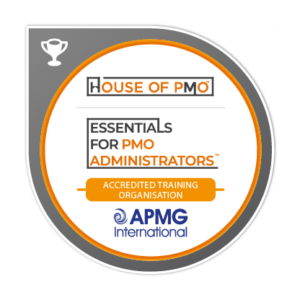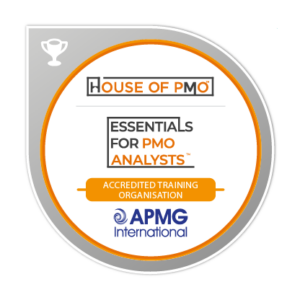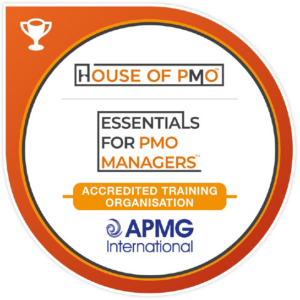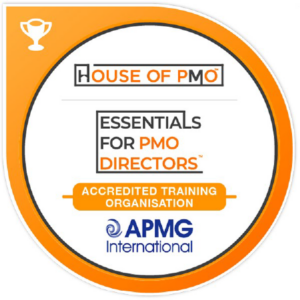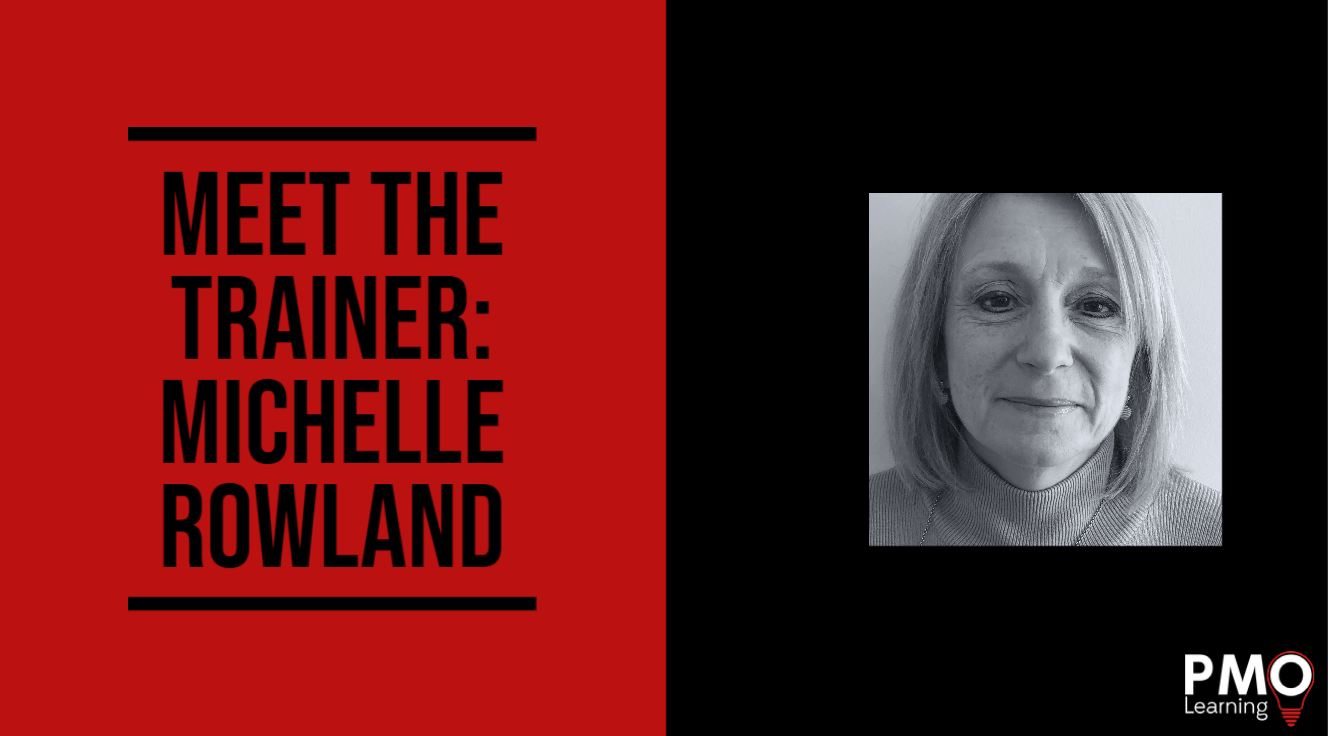
Our next installment in our Meet the Trainers series is Michelle Rowland, trainer of Essentials for PMO Administrators, Essentials for PMO Analysts, P3O® Foundation and Practitioner and MoP® Foundation and Practitioner.
Can you briefly introduce yourself?
I’m Michelle, I have been training for around 18 years. I was Head of PMO prior to that, as well as a Project and Program Manager so have worked in many PMO roles, as well as doing some change management etc., so have a wide range of PMO experience. I’m originally from Birmingham, but now live down south in Berkshire as you can probably tell from my Birmingham accent!
Red or brown sauce?
It’s gotta be red!
What’s one book that everyone should read?
I could go facetious and say something like PRINCE2®! Something like a basic project management book – our lives are all projects.
What’s been the highlight of your PMO career?
I think when I became lead examiner for ProPath, so lead examiner for PRINCE2®, PRINCE2 Agile®, MSP®, P3O® (the AXELOS PMO project method), MoP® and MoR® – a lot! For me, that’s where I felt I had been recognised as knowing a lot of stuff!
What’s been the lowest point in your career? What did you learn from it?
The lowest point in my project management career was when I was asked to process a change control as part of a stage plan. I sat with the IT Team Manager to look over the change control and what impact it had on the plan. We both sat in silence (which was unlike both of us!) for 10 minutes, sitting and staring at the plan. Suddenly, my colleague turns to me and says “I can’t remember how we produced this plan. I don’t remember any of the assumptions we made, I don’t remember the afternoon, or morning when we did it, I don’t remember really anything about it!” I turned to him and said “Me neither…had we been to the pub?” (We hadn’t!) My colleague suggested he may have made some notes on a piece of paper, so went to check his drawers. We took a break and came back, where he told me he’d had a clearout and must have thrown the piece of paper away.
So, he and I had to replan the stage in the project to include the change, which caused an exception which meant we needed an increase in the budget, time needed and resources, which I had to then go and present to the Project Board. Obviously when we replanned, we had to work off a whole new set of assumptions, resource constraints etc. not the original ones we had planned with. So I was supposed to be presenting this plan to the Project Board, but I said to my colleague “I am not going alone – you’ll have to come with me!”
So we presented to the Board, and all the way through I was avoiding eye contact – he was a giggler and I knew if I looked at him we’d set each other off and we’d never get through it and we’d be found out. We made it through the presentation, and presented the difference between the two plans as this change when actually it could have been a change in a whole load of other things as we’d rebaselined the plan based off new assumptions – as we still had no idea how we’d made the initial plan in the first place.
They approved the plan, we came out of the room and both fell on the floor giggling our heads off, we’d got away with it!
The lesson I learned is that when you produce a plan, document the assumptions, risks, constraints, and anything that you’ve used, because when you come to look back at it later (even if it’s only a couple of weeks later!) you’ll have forgotten!
Which courses do you deliver with PMO Learning?
I deliver the House of PMO Essentials for PMO Administrators and Essentials for PMO Analysts, MoP® and P3O®.
What’s your perfect delegate like?
My perfect delegate is someone who has done the pre-course reading, so is keen. Someone who hasn’t completed the reading is often not that committed. A perfect delegate engages with the learning all the way through, asking questions when they’re unsure, giving examples, contributing, answering questions when asked. When delegates join in it makes the course far more enjoyable for me, and other delegates!
What’s your favourite part of being a trainer?
Seeing people realise they do actually know what they’re doing, when you’re training and they say “oh we do that!” I like when they realise that often what they’re doing is good practice that they can then go back and apply. Or the other part I like is when delegates say “we don’t do any of this, but I can see loads of things we should be doing, that we can go back with and make a massive difference!”
I like when people have that lightbulb moment and realise what they’re doing is a good thing and why they’re doing it – often they don’t know why! Or when they realise they can go home and back a difference back at their desk.
What is one piece of advice you would give to someone currently working in a PMO?
Don’t be afraid to speak up.
What is currently the biggest challenge for people working in PMOs?
That’s a good question. I think one of the problems PMOs have is that they are often undervalued, in terms of acknowleding skills and how much they can contribute to delivery of projects and programmes. This isn’t a new challenge, but one that’s been going on for decades. There was a period where many PMOs were closed down because organisations were looking to delivery projects and programmes more cheaply. Problem is, cheap isn’t better! Therefore, one of the biggest challenge is selling the worth of your PMO and getting the appreciation of what you bring as a PMO to the party.
What do you think has been the biggest change you’ve seen in the PMO profession throughout your career?
I think it’s probably the move towards more digital. Back in the day when I first started everything was very manual, now what would have previously been done manually is now done digitally – so the way PMOs add value has changed in the sense it’s no longer doing the ‘legwork’ a lot of that is now automated, for example compilation of reports, escalations etc. I think a lot of analysis the PMO can do in support of escalation or reporting, the recommendations and insights are where there has been a lot of change. Before, this type of work might have been seen as ‘grunt work’, such as manual complilation and collecting the data. Now, it’s all done automatically, therefore the challenge has become how do we add value to this data? How can we make sure we are analysing and understanding the data, how can we put in recommendations and how can we make the data decision ready?
What is your hidden talent/party trick?
I’ve ran two marathons – Edinburgh in May 2019, and London in October 2021. I guess my hidden talent is that I don’t look like it but I am a marathon runner!
The P3O® and MoP® courses on this page are offered by PMO Learning. P3O® and MoP® are [registered] trade marks of AXELOS Limited. P3O® and MoP® are registered trade marks of AXELOS Limited, used under permission of AXELOS Limited. The Swirl logo™ is a trade mark of AXELOS Limited, used under permission of AXELOS Limited. All rights reserved.
Enjoying Our Blog?
Sign up and receive all our articles (we’ll send you an update once a week!) plus special offers and events:





